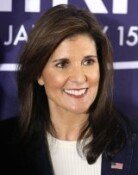General elections merely force voters to choose 'anti-Yoon' 'anti-Lee'
General elections merely force voters to choose 'anti-Yoon' 'anti-Lee'
Posted March. 28, 2024 07:27,
Updated March. 28, 2024 07:27
The official campaign for the April 10 general elections begins Thursday. Overseas voting began Wednesday, and next month's early voting (April 6 and 7) is just eight days away. The 22nd general elections, which will be held around the second anniversary of President Yoon Suk Yeol's inauguration, is a midterm assessment of the president. It is also an opportunity to evaluate the four years of the main opposition Democratic Party, which led the 21st National Assembly with a landslide victory four years ago.
The election is taking place amid tough internal and external conditions, including disruptions caused by the expansion of medical school enrollment, high inflation, and a deteriorating birth rate. Companies also need to devise survival strategies in the fierce race for technological hegemony. However, rather than competing on an urgent national agenda, the ruling and opposition parties are attempting to unite their extreme factions following an intra-party power struggle over nominations.
This is reflected in the general election plans revealed by the leaders of the ruling and opposition parties in an interview published Wednesday in The Dong-A Ilbo. "What they are talking about is more about overthrowing the state than checking the government," said Han Dong-hoon, the chairman of the ruling People’s Power Party’s emergency committee, referring to the Democratic Party. "They are pursuing private revenge and defense, not the public good." The comments reaffirmed the party's disregard for the opposition, casting doubt on whether cooperation can be restored after the general elections. "The ruling party is incompetent, irresponsible... and makes a lot of empty promises," said Lee Jae-myung, the leader of the Democratic Party. "The general elections are a historical watershed determining whether South Korea will collapse or move forward." Lee considers the ruling party a group that will collapse the country.
Once the official campaigning begins, the general elections often turn into an even bigger battleground. However, the leaders of the ruling and opposition parties should not turn a blind eye to voters who have been hurt by the unprecedentedly intense rivalry between the right and the left. They should be allowed to fight the campaign battles, but at the same time, they should also present a message of coexistence and cooperation. Only then will there be breathing room in state administration and parliamentary politics in the post-election period.







